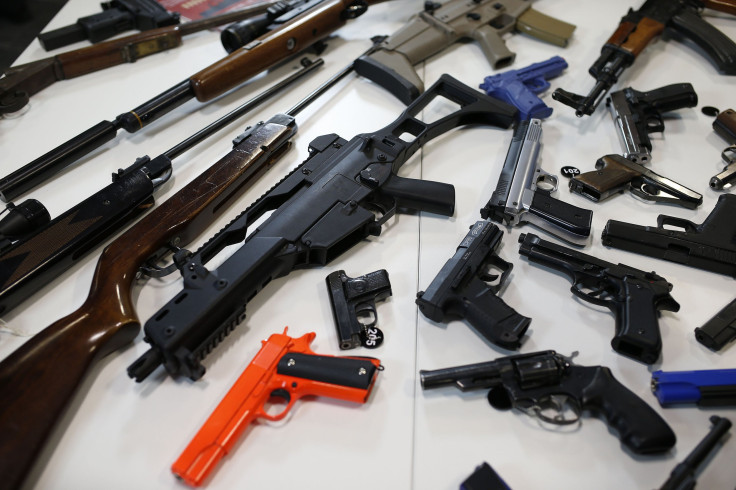Jo Cox Killing: UK Gun Deaths Are Rare, But Up Recently

Tragedy struck Britain on Thursday as Member of Parliament Jo Cox, 41, was killed by an attacker reportedly wielding a gun and a hunting-style knife. Gun deaths are relatively uncommon in the United Kingdom — at least compared with the United States — but there also has been a recent uptick.
After a decade of decreasing murder rates, the homicide rate in England and Wales grew by 14 percent in the 12 months leading up the September 2015. It has been linked to guns and knives.
Wrote the Guardian in January:
The number of homicides in England and Wales rose by 71 to 574 in the 12 months to September 2015 - an increase of 14% fuelled by rises in knife and gun crime, official statistics show.
There are far fewer guns in the U.K. than the U.S. The U.K. effectively banned owning handguns after a mass shooting at a school in 1996 that left 18 dead. There are an estimated 6.71 firearms per 100 people in the U.K., according to GunPolicy.org, a pro-gun control website that tracks gun-related figures. GunPolicy.org estimates there are 101.052 firearms per 100 people in the U.S. The data include both legal and illicit guns.
And while there might have been an uptick in gun deaths in England and Wales — the countries from which figures are readily available — the gun homicide rate still comes out to about one per every million people, which equates to about 50 or 60 gun deaths per year, according to USA Today. There were more than 8,000 gun deaths in the U.S., according to the latest FBI data from 2014.
While there have been attacks on members of Parliament before (most recently a stabbing in 2010), Cox's death — which may have been tied her political views on the so-called Brexit —came as a particular shock to the country. She was attacked while meeting with constituents and was a well-regarded leader who served as a vocal advocate for the people of war-torn Syria.
"She went to some of the most dangerous places in the world," said Gordon Brown, former prime minister, via the Financial Times. "The last place she should have been in danger was in her hometown."
© Copyright IBTimes 2025. All rights reserved.




















